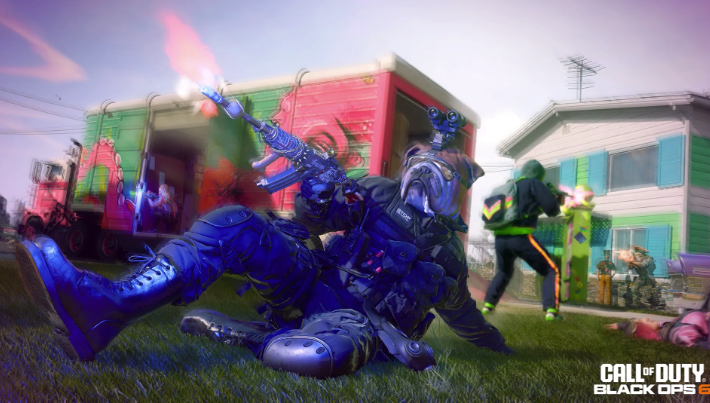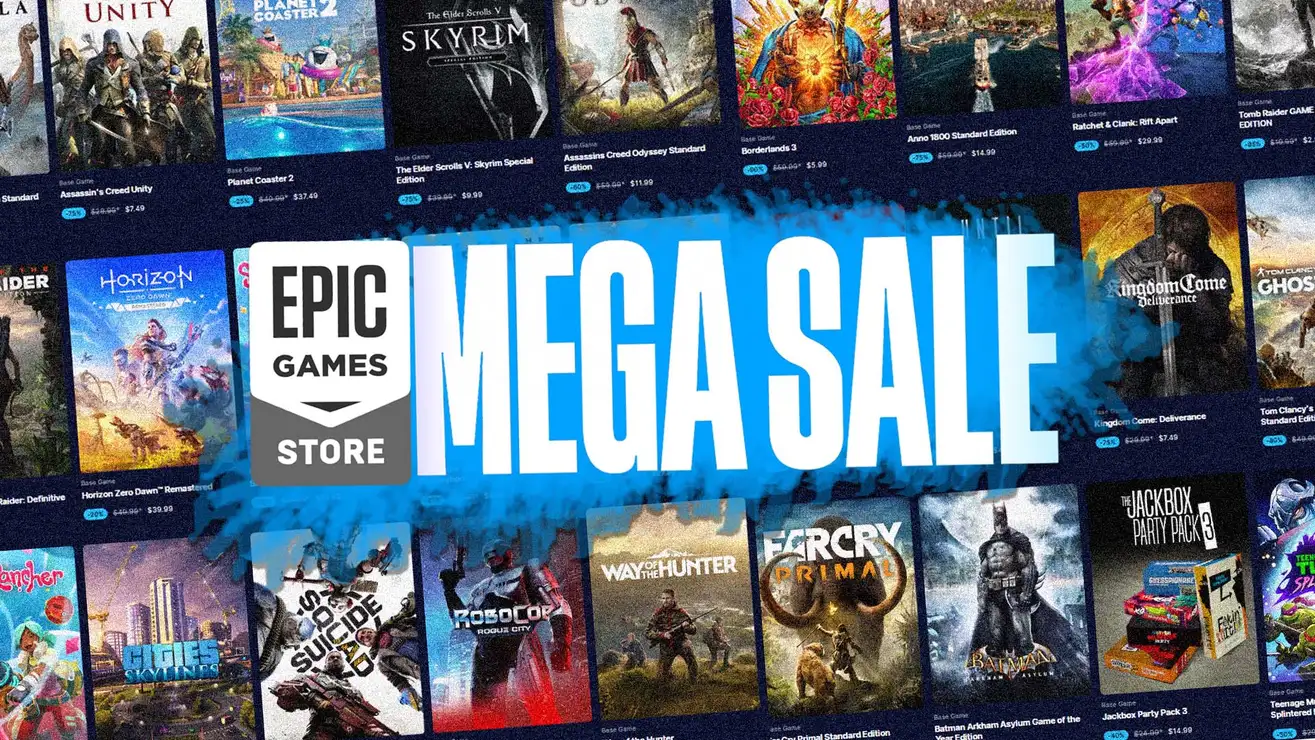Ex-CoD Dev Criticizes Franchise’s FOMO Tactics
A former prominent developer on the Call of Duty franchise, Mark Rubin, has voiced public criticism regarding the current strategic direction of the popular series. Rubin, who previously served as a producer at Infinity Ward and worked on defining titles such as the original Modern Warfare trilogy, stated on social media that he believes publisher Activision is intentionally designing Call of Duty games to “make the most money possible” from their players through manipulative tactics, rather than solely focusing on creating a high-quality gaming experience that organically draws players in.

Ex-CoD Dev Criticizes Franchise’s FOMO Tactics
Mark Rubin’s Background with Call of Duty
Mark Rubin is a respected figure among long-time fans of Call of Duty, particularly for his contributions during what many consider a golden era for the franchise. As a producer at Infinity Ward, he was involved in the development of the original Modern Warfare games, titles celebrated for their compelling multiplayer modes, engaging campaigns, and overall impact on the first-person shooter genre. His extensive history with the series provides a unique perspective on how Call of Duty has evolved over the years.
The Critique: FOMO and Engagement Tactics
Rubin’s core criticism centers on what he perceives as a shift in philosophy within the Call of Duty franchise. He argued that many modern games, including Call of Duty, are heavily focused on monetization strategies that prioritize extracting maximum revenue from the player base. “They rely heavily on [fear of missing out] marketing and [engagement-optimized matchmaking],” Rubin stated. He contrasted this with what he felt was the franchise’s approach in the past:
“But I feel like it used to be just more about the quality of the game which would drive players to play,” he added. According to Rubin, this shift means the focus is less “player centric” and more on tactics designed to keep players engaged and potentially spending, rather than prioritizing higher quality experiences like better maps and modes.
Understanding FOMO in Gaming
Fear of Missing Out, commonly known as FOMO, is a powerful psychological tactic frequently employed in live service games like modern Call of Duty titles. It involves creating limited-time opportunities or content that players feel pressured to engage with before they disappear. This can include timed events, exclusive cosmetic items only available for a short period, or battle passes that offer desirable rewards tied to playing within a specific season or timeframe.
The design aims to encourage consistent play sessions to unlock rewards or make impulse purchases of exclusive content, playing on the player’s fear of missing out on something valuable or prestigious that won’t be available later.
Engagement-Optimized Matchmaking Explained
Engagement-optimized matchmaking is another controversial tactic that Rubin mentioned. While traditional matchmaking systems aim to create fair matches based primarily on player skill, engagement-optimized systems are speculated (and sometimes shown by patents or leaks) to consider other factors.
These factors might include player behavior, likelihood to spend, or even strategically placing players in lobbies that are intended to encourage continued play sessions, sometimes by creating varied experiences that prevent frustration from consistent losses while still providing challenges. Critics argue this prioritizes player retention and potential monetization over purely competitive integrity. Rubin’s comment suggests he believes this type of system is being heavily utilized in Call of Duty.
Contrasting Philosophies: Activision vs. Larian
Rubin offered direct advice to other developers, urging them to “Be more like Larian, less like Activision.” This comparison highlights a perceived difference in development philosophy. Larian Studios, the developer behind the critically and commercially successful Baldur’s Gate 3, is often celebrated for prioritizing a complete, player-centric experience with a wealth of content available for a single purchase, featuring minimal live service elements or FOMO tactics. Rubin’s advice suggests a return to a model where the inherent quality and depth of the game itself are the primary drivers for player engagement and success, rather than external manipulative strategies.
Rise of Microtransactions in CoD
Rubin’s comments about making money and FOMO align with the noticeable increase in microtransactions and paid content within the Call of Duty franchise in recent years. Beyond the base game purchase, modern titles feature extensive in-game stores offering cosmetic bundles, battle passes, and paid event passes.
For example, Black Ops 6 has introduced paid event passes tied to specific crossovers like the Squid Game and TMNT events, and a recent pass allowed players to acquire a playable Seth Rogen character. These paid passes and store bundles are often integrated with limited-time events or seasonal content, directly leveraging FOMO to encourage purchases and continuous engagement during specific periods.
An Evolved Franchise Identity
Despite acknowledging that there are still “great people at Activision and their studios,” Rubin felt compelled to speak out because he feels that Call of Duty and Activision as a whole have “evolved into something they weren’t and haven’t been able to escape.” This suggests a view that the core identity or founding principles of the franchise, perhaps rooted in prioritizing multiplayer balance and compelling gameplay loops above all else, have been significantly altered by the shift towards live service models and aggressive monetization strategies.
Context: The XDefiant Comparison
Rubin’s recent comments were made in response to a fan who tagged him in a social media post praising Rubin’s latest project, XDefiant, while criticizing the current state of Call of Duty. XDefiant, a free-to-play first-person shooter developed and produced by Rubin at Ubisoft, was seen by some as a potential competitor offering a different gameplay feel.
However, despite initial interest, XDefiant struggled to find a sustained audience, and Ubisoft recently announced that its servers would be going offline in June 2025. The fact that Rubin’s critique of Call of Duty’s strategy comes from the perspective of a developer whose own recent game failed to achieve commercial traction adds a layer of irony and complexity to his position, contrasting the struggle for audience in a new IP with the massive scale Call of Duty maintains, even amidst criticism of its tactics. According to his LinkedIn profile, Rubin remains employed at Ubisoft.
Developer Perspectives on Industry Trends
Rubin’s statements reflect a debate that is common within the video game industry, particularly as live service games and extensive monetization have become the norm for major franchises. Many developers are passionate about creating engaging and player-friendly experiences, and critiques can arise when business objectives appear to conflict with core design philosophies or consumer sentiment. Rubin’s status as a former key figure on the series lends particular weight to his perspective on how Call of Duty has changed over the years.
Quality vs. Tactics
In conclusion, former Call of Duty producer Mark Rubin’s comments highlight a perceived shift in the franchise’s development priorities, arguing that manipulative tactics like FOMO marketing and engagement-optimized matchmaking are now prioritized over the core quality of the game experience itself for the purpose of maximizing revenue.
While acknowledging the talent still working on the series, Rubin believes Call of Duty has fundamentally changed its identity. His view, contrasting Activision’s approach with the player-centric philosophy of studios like Larian, underscores an ongoing debate within the gaming industry about the balance between business strategy, monetization practices, and the fundamental goal of creating compelling games that players want to return to because of their inherent quality.





